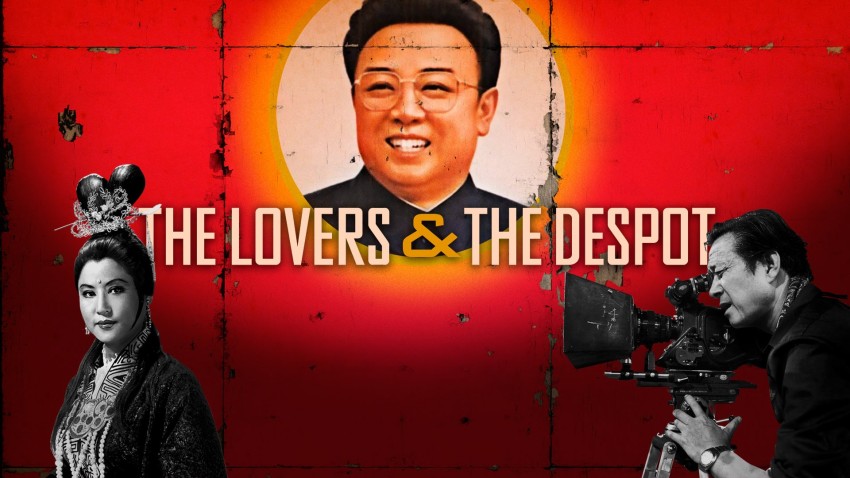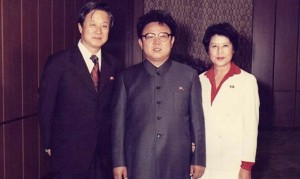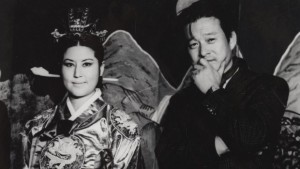Stranger than Fiction
September 11, 2016 · 0 comments
Jeremy Clarke on a story too crazy to be anything but true…
 The Lovers And The Despot concerns a South Korean film director and his leading actress, kidnapped by North Korean leader Kim Jong-Il for the purpose of beefing up that country’s film industry – an incredible story that may be familiar from the earlier book on the subject, A Kim Jong-Il Production.
The Lovers And The Despot concerns a South Korean film director and his leading actress, kidnapped by North Korean leader Kim Jong-Il for the purpose of beefing up that country’s film industry – an incredible story that may be familiar from the earlier book on the subject, A Kim Jong-Il Production.
Actress Choi Eun-hee met director Shin Sang-ok on his 1955 film Dream. They became a celebrity couple working together on numerous films and raising a family until she discovered he had fathered two more children with a younger actress. The couple’s seeming fairy-tale romance disintegrated into divorce. Shin’s production company was in financial trouble and his wife began looking elsewhere for film projects.
In 1978, Choi took a trip from South Korea to Hong Kong to meet a producer and discuss a possible production. She never returned. A few months later, ex-husband Shin followed her trail. He too disappeared. Years later, the pair turned up working in North Korean film production and there were rumours that Shin had gone to work there of his own free will. After the couple’s dramatic escape, Shin worked briefly in the US in the 1990s producing the 3 Ninjas children’s franchise for Disney. However he never worked in his South Korean homeland again. He died in 2006.
 Shin’s death means that any present day film maker considering this story’s potential is going to have to do so without him. For that matter, the ‘Dear Leader’ Kim Jong-Il passed away in 2009, also removing himself from the picture. British directors Robert Cannan and Ross Adam were understandably hooked by the story. They saw Choi and Shin’s adventure as unparalleled, “thrilling melodrama” even compared to the complex love lives of many directors and actors, and were amazed to find no one had filmed the story.
Shin’s death means that any present day film maker considering this story’s potential is going to have to do so without him. For that matter, the ‘Dear Leader’ Kim Jong-Il passed away in 2009, also removing himself from the picture. British directors Robert Cannan and Ross Adam were understandably hooked by the story. They saw Choi and Shin’s adventure as unparalleled, “thrilling melodrama” even compared to the complex love lives of many directors and actors, and were amazed to find no one had filmed the story.
The pair set about negotiating with the actress and the Shin Films Foundation for the rights and “being afforded the freedom to tell the story in the way we wanted”. Given that many in South Korea believe the actress and her director to have lied about their story, Choi was eventually persuaded to accept the film makers’ demands on the grounds that a biased or censored retelling of events would be against her best interests.
Other possible sources proved less helpful. North Korean officialdom didn’t want to get involved while the CIA wouldn’t discuss the case, presumably because it’s still classified. However an ex CIA agent came to the film makers’ aid, prepared to speak “off-the-record”.
So, too, did a Hong Kong detective who talked about Choi’s disappearance. Her vacated hotel room contained all the paraphernalia you would expect from a woman travelling with no intention of suddenly leaving. This chimes with Choi’s on-camera testimony about visiting an obscure piece of coastline with her prospective producer, only to find herself manhandled into a small boat by a group of men. The producer was apparently a North Korean agent. Similarly, Shin claimed to have been in a car in Hong Kong with someone else, only to find himself being driven away when four other men got in.
 While Choi’s time in Korea involved being hosted by Kim Jong-Il almost from the day she arrived, the less fortunate Shin spent four years in a state detention centre while apparatchiks attempted to brainwash him. They both got off pretty lightly compared to some of the punishments meted out to nationals in the more extreme areas of the North Korean regime, as you can see from the excellent if harrowing part-animated documentary Camp 14: Total Control Zone (2012).
While Choi’s time in Korea involved being hosted by Kim Jong-Il almost from the day she arrived, the less fortunate Shin spent four years in a state detention centre while apparatchiks attempted to brainwash him. They both got off pretty lightly compared to some of the punishments meted out to nationals in the more extreme areas of the North Korean regime, as you can see from the excellent if harrowing part-animated documentary Camp 14: Total Control Zone (2012).
After this, Choi spotted Shin at an official party. The pair were reunited. Shin worked on various film projects to culturally promote North Korea with state resources at his disposal. Given his former, financial failure in the South this must have proved quite an attraction despite the downside of working for the repressive Northern regime.
At this juncture, the pair pondered the possibility of escape and decided to covertly record conversations between themselves and Kim Jong-Il, whose voice had rarely been heard outside his own country. When Cannan and Adam got their hands on these tapes, they realised they’d struck gold. Rather like the late subject’s audio cassettes in recent Brit documentary Notes on Blindness (2016), these allowed for the voice of a one of the film’s main protagonists to not only appear in the film but also contribute a great deal to its content.
The dictator’s trust for Shin and Choi grew to the point where they were allowed to travel abroad to various international film festivals. The Guardian‘s film critic Derek Malcolm recalls seeing the pair with an extensive, twenty-man detail wherever they went. The couple seized their chance during a trip to Vienna, slipped past the open door of the hotel room in which their twenty guards were relaxing and, after a hair-raising car chase, made it to the safety of the US embassy and asylum. The reconstruction of the car chase in the documentary plays out like a Cold War thriller to provide an unexpected viewing highlight.
The documentary is punctuated by clips from Shin and Choi’s filmography, plus tantalising shots from the film Shin made with the young starlet with whom he cheated. Also featured are scenes from the occasional North Korean epic such as an epic home-grown attempt to rival the blockbusting Titanic. But the story of the couple’s escape from North Korea is the thing. Cannan and Adam are to be congratulated for putting it on the big screen.
The Lovers and the Despot is released in cinemas on 23rd September in the UK.
Leave a Reply